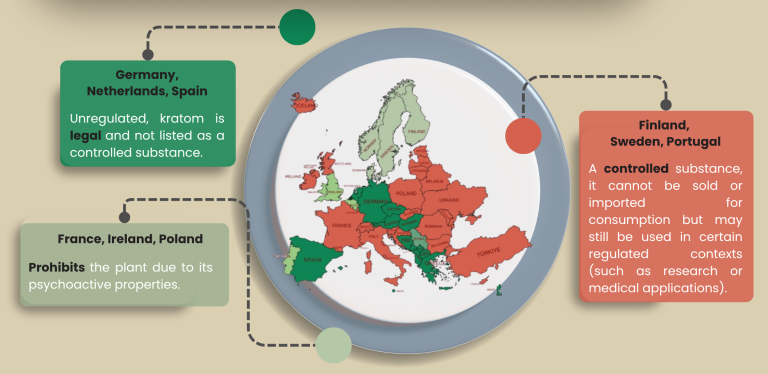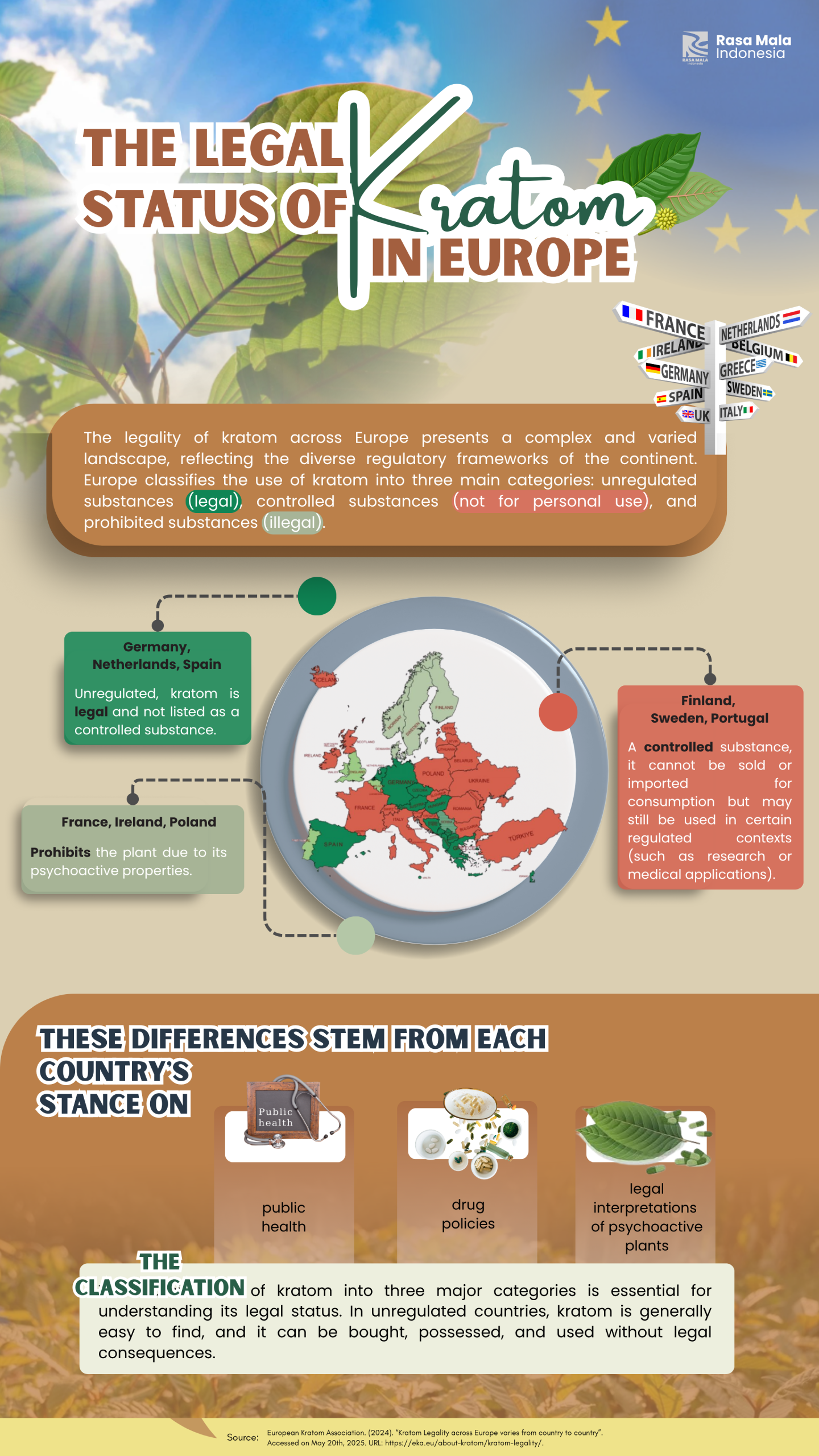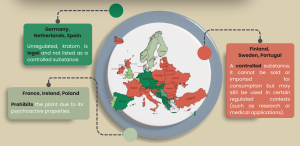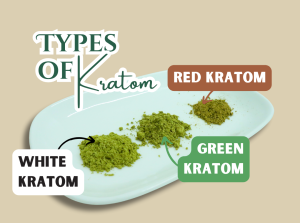
The legality of kratom across Europe presents a complex and diverse landscape, reflecting the continent’s diverse regulatory frameworks. Europe classifies kratom use into three main categories: unregulated (legal), controlled (not for personal use), and prohibited (illegal). Countries like Germany, the Netherlands, and Spain classify kratom as unregulated, meaning it is legal but not listed as a controlled substance. In Finland, Sweden, and Portugal, kratom is a controlled substance. It cannot be sold or imported for consumption. However, it can still be used in specific regulated contexts, such as research or medical applications. Meanwhile, countries like France, Ireland, and Poland have banned the plant due to its psychoactive properties. These differences stem from each country’s stance on public health, drug policy, and legal interpretation of psychoactive plants.

Classifying kratom into three broad categories: unregulated (legal), controlled (restricted use), and prohibited (illegal) is crucial to understanding its status. Kratom is generally readily available and can be purchased and possessed in unregulated countries, allowing for use without legal consequences. Kratom’s status as a controlled substance means its trade is subject to strict regulations, often permitting use based on a doctor’s prescription or scientific study. Conversely, in countries where kratom is prohibited, personal possession of kratom is subject to legal penalties.
Countries where kratom is legal include Albania, Austria, Bosnia and Herzegovina, the Czech Republic, Germany (legal, if labelled not for human consumption), Greece, Hungary, Kosovo, Malta, Montenegro, the Netherlands, North Macedonia, and Spain. Countries that control kratom use include Denmark (classified as a controlled substance; special permit required), Finland (prohibited for import/sale; personal use not criminalized), Norway (illegal to possess, sell, or import; doctors can prescribe), Portugal (illegal import/sale; possession not criminalized), and Sweden (prohibited for human use; may be used in non-consumable products). Meanwhile, countries that classify kratom as illegal include Belarus, Belgium (banned since June 2024), Bulgaria (banned since 2011), Croatia, Cyprus, Estonia, France, Iceland, Ireland, Italy, Latvia, Lithuania, Luxembourg, Moldova, Poland, Romania, Russia, Serbia, Slovakia, Slovenia, Switzerland, Turkey, Ukraine (banned since November 2024), and the United Kingdom (banned under the Psychoactive Substances Act 2016).
Buy Kratom Product
Please visit our store to purchase products


